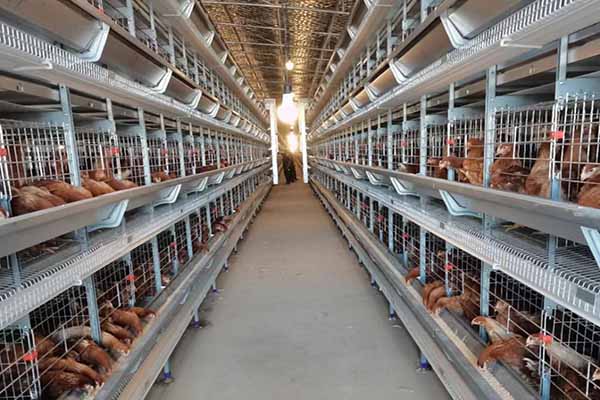Automated Chicken Farm Subsidy Policy in Tanzania: Boosting the poultry sector
Time : 2025-04-25
In Tanzania, the poultry industry is a vital part of the agricultural sector, providing employment and income for many rural communities. To support this growing industry, the government has introduced an automated subsidy policy for chicken farms. This policy aims to streamline the process of providing financial assistance to farmers, making it more efficient and accessible. Let’s dive into how this automated chicken farm subsidy policy works and its potential impact on the poultry sector in Tanzania.
Understanding the Automated Subsidy Policy
The automated chicken farm subsidy policy in Tanzania is designed to provide financial aid to farmers who raise chickens. The policy is managed through a digital platform that makes the application process quick and straightforward. Here’s a breakdown of how it operates:
1. Application Process: Farmers interested in applying for the subsidy can do so through the digital platform. They need to fill out an online form with details about their farm, including the number of chickens, the breed, and the purpose of the subsidy.
2. Eligibility Criteria: The government has set specific criteria for eligibility. Farms must meet certain production levels and adhere to hygiene and biosecurity standards. The subsidy is available for both small-scale and commercial farms.
3. Disbursement: Once the application is approved, the subsidy is directly transferred to the farmer’s account. This eliminates the need for long queues and paper work, making the process more efficient.
Benefits of the Automated Subsidy Policy
The automated subsidy policy has several benefits for both farmers and the overall poultry industry in Tanzania:
1. Efficiency: By moving the process online, farmers can apply for subsidies at any time, from anywhere. This reduces the time and effort required to apply for financial aid.
2. Transparency: The digital platform ensures that all applications are tracked and monitored, reducing the risk of fraud and corruption.
3. Accessibility: The policy makes it easier for small-scale farmers to access financial support, which can help them expand their operations and improve productivity.
4. Incentive for Investment: The subsidy encourages farmers to invest in better farming practices, such as upgrading their facilities and purchasing higher-quality feed.
Challenges and Solutions
While the automated subsidy policy has many advantages, there are also challenges that need to be addressed:
1. Digital Literacy: Not all farmers have access to the internet or the necessary digital skills to use the platform. To overcome this, the government could partner with local organizations to provide training and support.
2. Infrastructure: In some rural areas, internet connectivity is poor. To ensure that all farmers can access the platform, the government may need to invest in improving infrastructure.
3. Monitoring and Evaluation: It’s crucial to monitor the impact of the subsidy policy and make adjustments as needed. Regular evaluation will help ensure that the policy is achieving its intended goals.
Case Studies
Several farmers in Tanzania have already benefited from the automated subsidy policy. Here are a couple of examples:
– John, a Small-Scale Farmer: “Before the subsidy policy, I struggled to afford high-quality feed for my chickens. Now, I can get the feed I need at a discounted price, and my chickens are healthier than ever.”
– Sara, a Commercial Farmer: “The subsidy has helped me expand my farm and increase my production. I’ve also been able to invest in new equipment, which has improved my efficiency.”
Conclusion
The automated chicken farm subsidy policy in Tanzania is a significant step towards supporting the poultry industry. By streamlining the application process and providing financial assistance, the government is helping farmers improve their operations and increase their productivity. While there are challenges to be addressed, the policy has the potential to make a substantial impact on the poultry sector in Tanzania.












